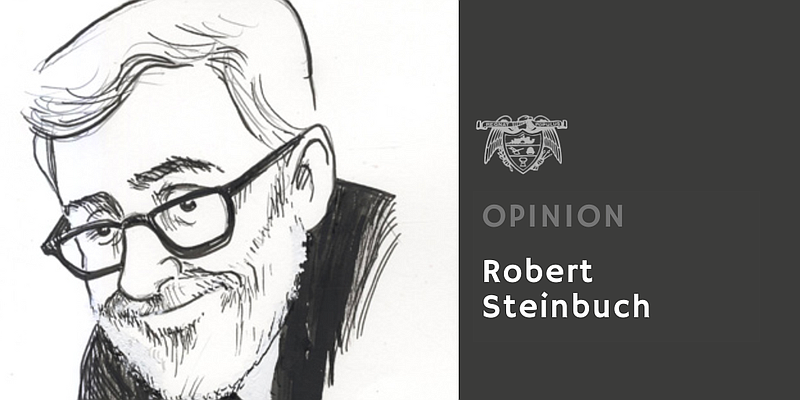My very first Sunday column discussed the importance of Arkansas' light-shining Freedom of Information Act (FOIA)--the law I've dedicated my career to analyzing and protecting.
In that column, I recounted how, in every legislative session, the FOIA comes under attack. This past session highlighted the brazenness with which some government bureaucrats line up--often in their uniforms to impress you with their officiality (or is it officiousness?)--to seek to undermine transparency.
During consideration of one bill, veteran conservative Rep. Richard Womack brilliantly captured the situation: "Literally everybody that testified in favor of this bill stands to potentially benefit from keeping sunshine out."
Womack then rebuffed an official accusing requesters of not having sufficient "skin in the game."
Womack rightly retorted: "Everyone that files a FOIA request has skin in the game through taxes, through providing [their] income [to pay government officials' salaries], through their time, through their effort."
And Womack fittingly rejected weakening the FOIA to appease those government officials who avoid creating records to circumvent transparency. Rather than succumbing to such bad behavior, Womack rightly countenanced that this malign conduct should give legislators more reason to support a robust FOIA. Womack's comments now seem prescient.
In February, at a Bowen Law School faculty meeting, the dean declared the administration was working with Byron Eiseman to alter the terms of the eponymous-faculty honorific his donation created almost a quarter of a century ago. They sought to change the terms of this over 20-year-old agreement creating the "Eiseman Professorship" to make it solely available to tax-law full professors, she said. The law school has no such person currently.
Because of this eventuality, in fact, the professorship has always been open to senior faculty teaching in any area of law if none taught taxation. Indeed, the then-dean who signed that gift agreement exalted the virtue of this very flexibility. Why then, nearly 25 years later, would the administration affirmatively seek to prevent the award of the professorship?
Moreover, charitable donors are precluded from maintaining any control over their gifts, and universities can't change finalized gift agreements. Nonetheless, the dean's email declares that two parties who may not change a completed gift agreement are endeavoring to do just that.
So I made my first FOIA request, and the university provided various records: the original agreement, multiple revised versions, and some 20-plus pages of emails.
Included was an email from the law school's fundraising officer who wrote her university counterpart when no new agreement was executed after seven weeks: "I have Byron wondering what the heck we are doing." That was eight months ago.
Two weeks ago, in announcing the application period for various endowed professorships, the dean wrote that the "person occupying the [Eiseman] Professorship shall be a full professor ... recognized ... in the subject of taxation," but the dean entirely omitted that the position remains open to a professor in any area of law because there is no full professor teaching tax.
George Orwell aptly observed: "The past was erased, the erasure was forgotten, the lie became the truth."
The dean further stated: "An amendment to this agreement is pending that emphasizes taxation."
Why would an award for a "professor recognized ... in the subject of taxation," as the dean baldly asserted, need to be amended to "emphasize" taxation? (Is that like extra-wet water?)
So I made another FOIA request.
This time, I received only one document: a revised unexecuted agreement. I received no further emails, no documents with drafting marks, no discussions--nothing else.
So I then requested the email forwarding that unexecuted agreement to the FOIA coordinator to identify its then-undisclosed source (the university's fundraising officer).
The fundraiser's since-disclosed email said he was "provided this doc[ument]"--the draft agreement--on May 18. Yet, I was given no records showing who "provided" the fundraiser the unexecuted agreement.
Could this mystery be an example of what Womack says warrants redoubling our commitment to transparency? Who knows--maybe no further communications or editing rounds exist and the new unexecuted agreement simply sprung up like a mushroom in the fundraiser's office with no accompanying correspondence whatsoever.
Curiosities abound.
Take further my recent discussion of Central Arkansas Library System (CALS) Director Nate Coulter's preoccupation with the new statute eliminating an exemption in obscenity law, codifying elected-official oversight of book placement, and clarifying existing law prohibiting providing minors harmful material.
CALS' response to a FOIA request included a text exchange between Garland County Library director Adam Webb and Coulter. Therein, Webb asked Coulter for a "non-FOIA email" to which to send public records, and Coulter replied by sending his personal email to Webb.
But there is no such thing as a "non-FOIA email"--Hillary's Chappaqua basement-server-reflecting desires to the contrary notwithstanding.
Sure, public officials have personal email accounts, but if someone sends public records there, the files remain subject to the FOIA.
Studying the FOIA has taught me that it's not what you see from government that should scare you; it's what you don't.
This is your right to know.
Robert Steinbuch, professor of law at the Bowen Law School, is a Fulbright Scholar and author of the treatise "The Arkansas Freedom of Information Act." His views do not necessarily reflect those of his employer.
